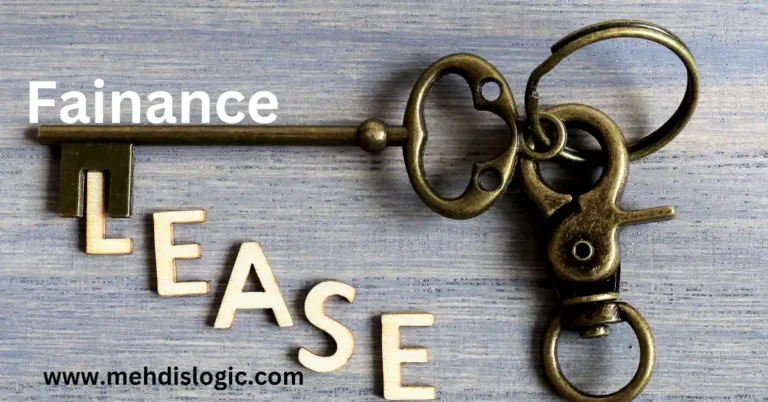How to Build Wealth in Your 20s: A Complete Guide to Financial Freedom
Imagine being financially free by the time you hit your 30s—sounds amazing, right? Yet, for many young adults, building wealth feels like an uphill battle.Between student loans, rising living costs, and the allure of instant gratification, securing financial stability might seem out of reach.
Understanding the Importance of Building Wealth Early
Why Your 20s Are the Best Time to Start
- Compound Interest Magic: The earlier you start investing, the more time your money has to grow exponentially.
- Habit Formation: Good financial habits formed now can set the tone for the rest of your life.
Common Financial Mistakes in Your 20s
- Overspending: Falling into the trap of lifestyle inflation.
- Ignoring Investments: Missing out on early opportunities for growth.
- Skipping Emergency Funds: Leaving yourself vulnerable to unexpected expenses.
Laying the Groundwork for Financial Success
Define Your Financial Goals
- Short-Term Goals: Saving for a vacation or building an emergency fund.
- Long-Term Goals: Retirement planning, buying a house, or starting a business.
- Use the SMART framework: Specific, Measurable, Achievable, Relevant, and Time-bound.
Create a Budget You Can Stick To
- Use tools like Mint, YNAB, or a simple spreadsheet.
- Apply the 50/30/20 rule:
- 50% Needs: Rent, groceries, transportation.
- 30% Wants: Dining out, hobbies, subscriptions.
- 20% Savings/Investments: Emergency funds, retirement accounts.
Build an Emergency Fund
- Target Amount: Save 3–6 months of living expenses.
- Best Accounts: High-yield savings accounts or money market accounts.
Mastering the Basics of Investing
Learn the Basics of Investing
- Understand common investment types:
- Stocks: Ownership in a company.
- Bonds: Loans to corporations or governments.
- ETFs/Mutual Funds: Diversified portfolios.
- Beginner resources: Books like The Intelligent Investor, podcasts, or online courses.
Start Small and Think Long-Term
- Use micro-investing apps like Acorns or Robinhood to get started.
- Dollar-Cost Averaging: Invest small, consistent amounts over time to reduce risk.
Diversify Your Investments
- Spread your money across multiple asset classes to minimize risk.
- Examples of a diversified portfolio:
- 60% stocks, 30% bonds, 10% alternatives.
Balancing Debt and Savings
Investing vs. Paying Down Debt
- Prioritize paying off high-interest debt, like credit cards, before investing heavily.
- For low-interest debt, consider splitting resources between repayment and investments.
Be Aware of Hidden Fees
- Credit Cards: Know the interest rates and avoid unnecessary charges.
- Investment Accounts: Look out for management fees and expense ratios.
Building Multiple Income Streams
Embrace the Side Hustle Culture
- Popular side hustles: Freelancing, gig work, blogging, or e-commerce.
- Time Management Tips: Dedicate specific hours to avoid burnout.
Passive Income Opportunities
- Dividend-Paying Stocks: Earn regular income from investments.
- Real Estate: Explore rental properties or REITs (Real Estate Investment Trusts).
Developing Wealth-Building Habits
Automate Your Savings
- Set up automatic transfers to savings or investment accounts.
- Psychological Benefit: Out of sight, out of mind.
Continuously Educate Yourself
- Recommended books: Rich Dad Poor Dad, The Millionaire Next Door.
- Stay informed through financial blogs and news outlets.
Overcoming Financial Challenges
Handling Economic Uncertainty
- Adjust your budget to prioritize essentials.
- Invest conservatively during uncertain times.
Staying Motivated on Your Financial Journey
- Celebrate small wins, like reaching savings milestones.
- Partner with an accountability buddy to keep on track.
Conclusion
Building wealth in your 20s is not only possible but also immensely rewarding. By setting clear goals, developing smart habits, and making informed financial decisions, you can pave the way for a secure and prosperous future. Remember, every small step you take today brings you closer to financial freedom. Start now—your future self will thank you!
FAQs
- What’s the first step to building wealth 20s? Start by setting clear financial goals and creating a realistic budget.
- Is it better to pay off debt or invest? Focus on paying off high-interest debt first, while investing small amounts if possible.
- How much should I save for emergencies? Aim for 3–6 months of essential living expenses.
- What are some beginner-friendly investments? Index funds, ETFs, and micro-investing apps are great starting points.
- How do I stay motivated to save and invest? Break big goals into smaller, manageable milestones and celebrate progress along the way.


